In the history of Nigerian athletics, few names command as much respect as Enefiok Udo-Obong.
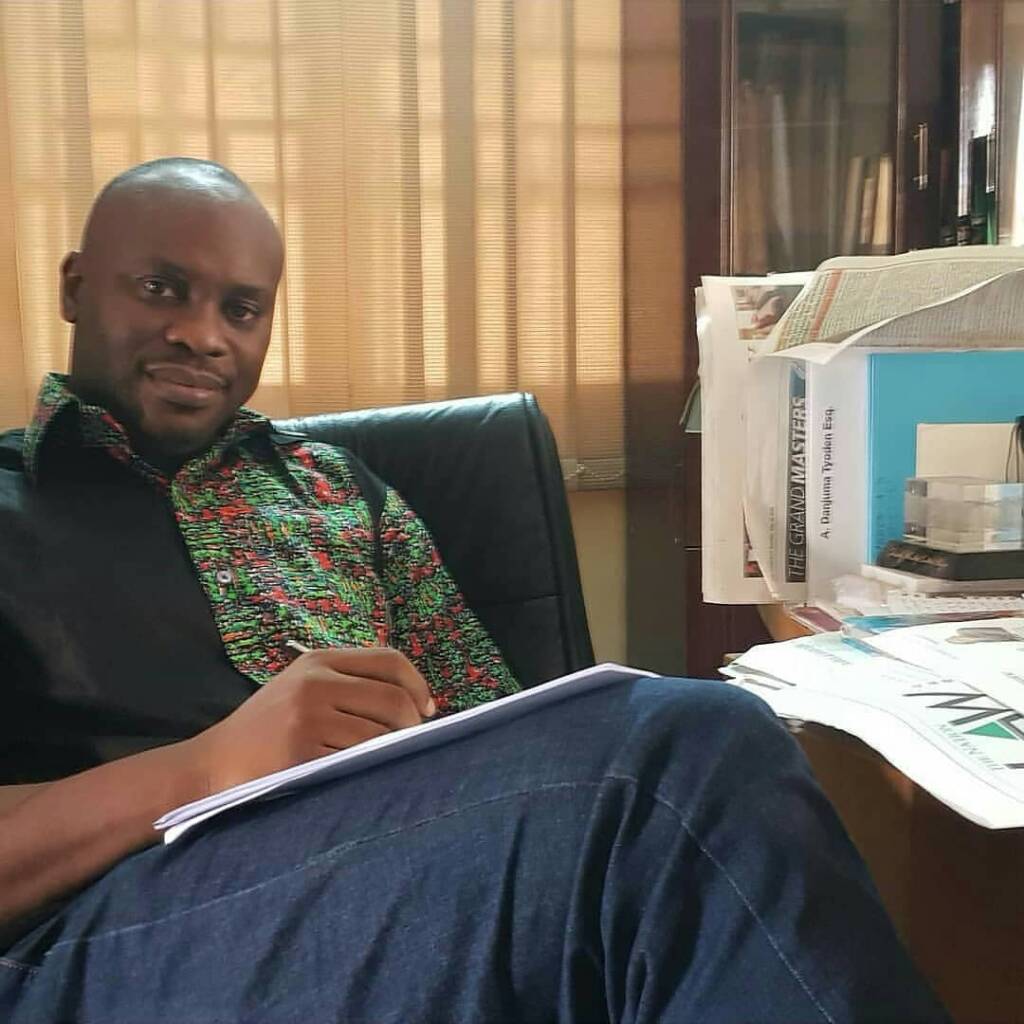
Born of Akwa Ibom heritage, Udo-Obong rose to international prominence at the Sydney 2000 Olympic Games, where his anchor leg in the men’s 4x400m relay became the defining moment of a generation. Beyond the raw speed and competitive fire he displayed that night, his performance symbolized resilience, national pride, and the enduring spirit of Nigerian sport.
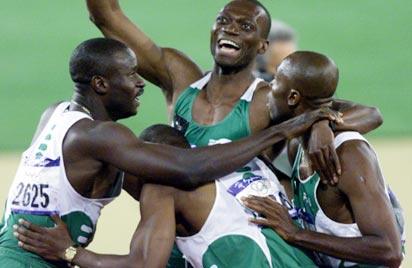
Born in Calabar but proudly of Akwa Ibom descent, Udo-Obong had always been known for his smooth running style, relentless determination, and a fiery competitive spirit that set him apart from a young age. He was not just another athlete; he embodied the resilience, pride, and fighting spirit of a nation hungry for glory.
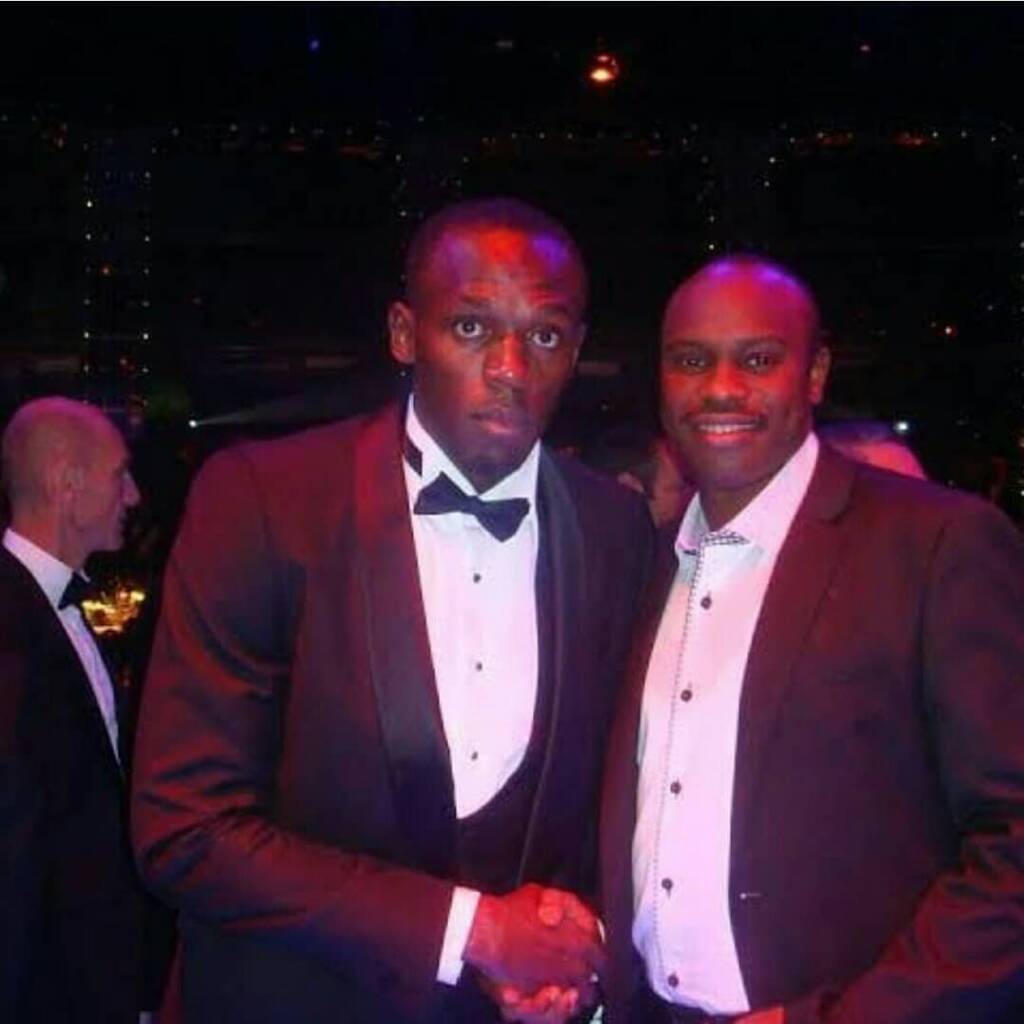
Enefiok Udo-Obong is a two time-Olympic medallist; three time-national champions in the 400m, as well as a six-time medallist in the Nigerian National Sports Festival and was technical Director at last year’s Niger Delta Sports Festival.
The men’s 4x400m relay final at the Sydney 2000 Olympics was already shaping up to be one of the most competitive races in modern history.
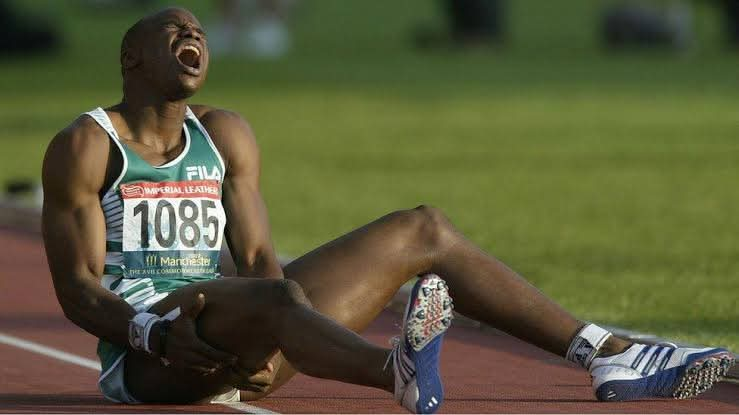
Powerhouses like the United States, Jamaica, and the Bahamas were favorites, their lineups stacked with world champions and record holders. Nigeria, meanwhile, carried quiet belief.
The Golden Quartet – Clement Chukwu, Jude Monye, Sunday Bada (RIP), and Enefiok Udo-Obong – were ready to run for more than medals. They were running for pride, for recognition, for history.
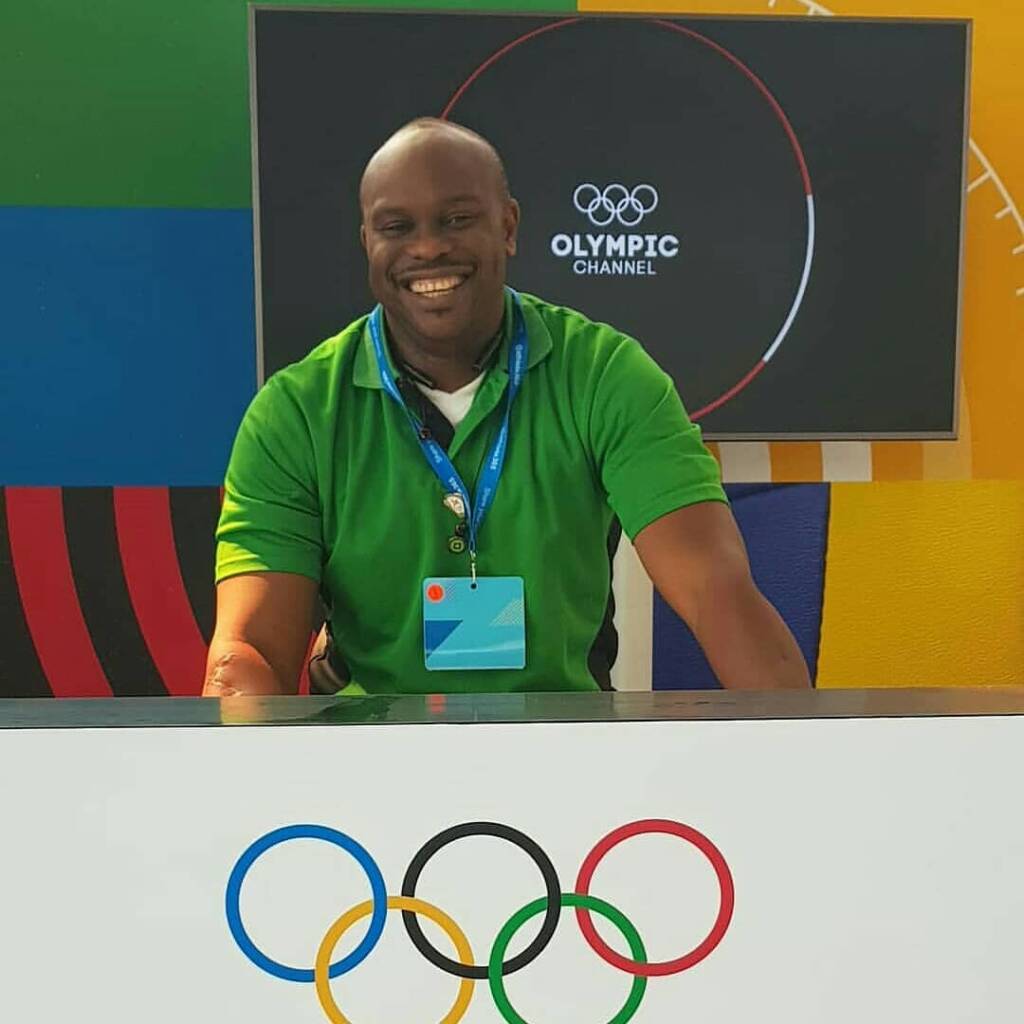
By the time the baton reached the legendary Sunday Bada on the third leg, Nigeria was trailing in 4th place.
The commentator, in the heat of the moment, barely gave the Nigerians a mention. The race seemed destined to be a showdown between the Americans, Jamaicans, and Bahamians.
But destiny had other plans.
Enter Enefiok Udo-Obong
As Bada handed the baton to Udo-Obong for the anchor leg, the young Akwa Ibom athlete exploded down the track. His first 200m were measured, calculated. He kept the leader (Micheal Johnson) in sight but did not panic. Then, in the final 150 metres, he summoned every ounce of speed, power, and heart.
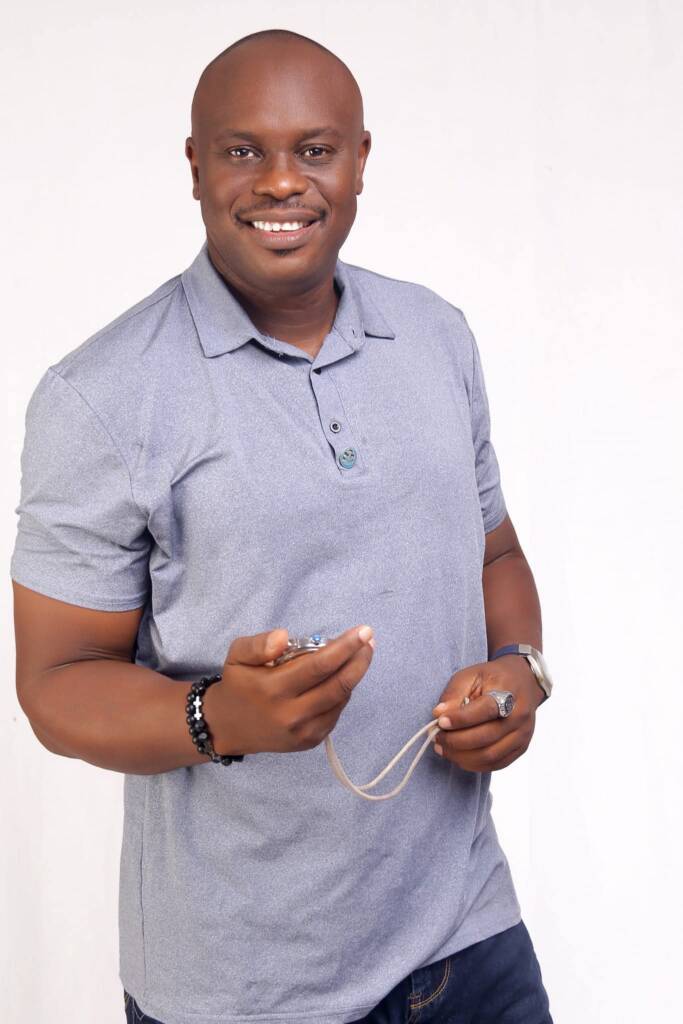
Stride by stride, Udo-Obong began to eat up the ground between himself and the Jamaicans and Bahamians. His long, elegant strides and relentless drive were a sight to behold. Suddenly, the crowd noticed. The commentator’s voice cracked with surprise: “Here comes Nigeria!” With the finish line in sight, Udo-Obong surged past, lifting Nigeria into the medal picture. The stadium erupted as he crossed the line, Nigeria firmly among the top three. Though initially the United States claimed gold, what mattered most to Nigerians was the sheer brilliance of Udo-Obong’s run, the courage of a young man who refused to be counted out.
Justice, though delayed
For years, Nigeria celebrated the silver. But in 2008, Antonio Pettigrew of the American team admitted to using performance-enhancing drugs during that period. Four long years later, in 2012, justice finally came: the Nigerian Quartet of Chukwu, Monye, Bada, and Udo-Obong were officially recognized as Olympic Gold medalists.
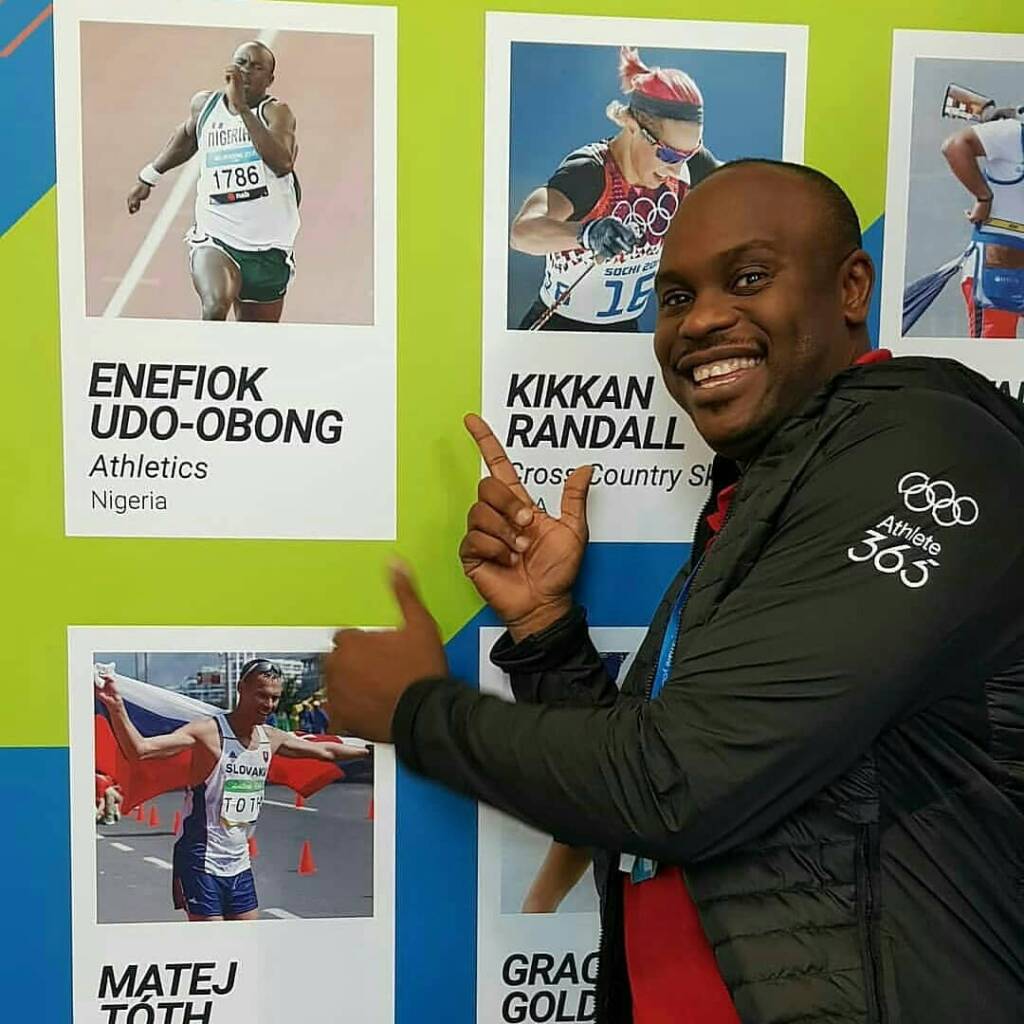
It was bittersweet. The medal ceremony in Sydney, the chance to hear “Arise, O Compatriots” echo around the stadium, had been stolen. Sunday Bada, the team’s steadying force, had tragically passed away in 2011. Yet, history could not be denied. Nigeria now had its only Olympic Gold on the track, and the name at the heart of that miracle was Enefiok Udo-Obong.
Beyond the Track
Udo-Obong’s story is not just about one race. His journey represents the glory of Nigerian athletics at its peak, when the country produced world-class quarter-milers with frightening depth. Athletes like Nduka Awazie and Fidelis Gadzama, who ran in the heats and also earned gold medals, showed how strong Nigeria was in the event.
For Udo-Obong, the significance runs deeper. As an Akwa Ibom son, he became a beacon of hope and pride for the Niger Delta and beyond. He showed that talent from any corner of Nigeria could conquer the world stage.
His name continues to inspire young athletes from Akwa Ibom and Nigeria, urging them to dream beyond local tracks and to aim for Olympic glory.
Today, Enefiok Udo-Obong stands as one of Nigeria’s most decorated sprinters, an Olympic Gold and Silver medalist, a Commonwealth Games medalist, and an inspiration to generations.


